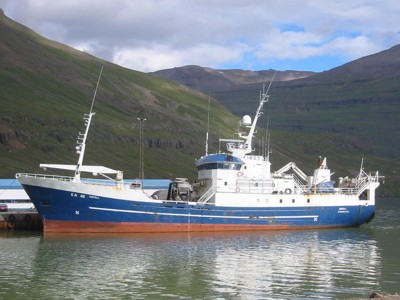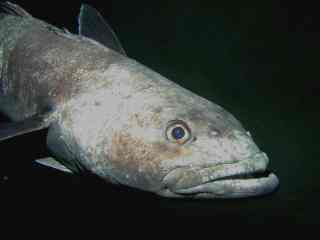Sixth Extinction Event
There is little doubt left in the minds of professional biologists that Earth is currently faced with a mounting loss of species that threatens to rival the five great mass extinctions of the geological past.
Some biologists have begun to feel that this biodiversity crisis — this “Sixth Extinction” — is even more severe, and more imminent, than Harvard Biologist Wilson had supposed in 1993. The current Sixth Extinction is different to extinction events in the past as it is a patently human-caused event.
UN Report on fish stock depletion
According to the UN's environment branch, if the world remained on its path of overfishing, fish stocks could become uneconomic to exploit, or extinct, by 2050.
Some 30% of fish stocks are estimated to be badly depleted already. British fish stocks have dropped by 94 percent in the past 118 years and commercial fishing has profoundly changed seabed ecosystems, leading to a collapse in numbers of many species. British members of parliament and experts holding talks in London fear that as fishermen seek to feed a growing wealthier population, they will demand to move up the food chain and inevitably there will be a crisis.
Cod fisheries collapsed in the North West Atlantic in the late 1980s due to overfishing, and have never recovered. A new study reveals that the changes in top-predator abundance were driven by human over-exploitation of large, predator fish species. According to scientists, fishing quota systems have done nothing to mitigate the fall and underline the need for urgent action to stop the overexploitation of European fisheries and rebuild stocks.
Global fish stocks like bluefin tuna are in decline; in Europe over 80 percent are overfished and a third are outside safe limits. Both Sea Shepherd ships, the Steve Irwin and the Bob Barker, will head for the Mediterranean from the Southern Ocean. The objective will be to intercept and oppose the illegal operations of Bluefin tuna poachers.

The Icelandic trawler Áskell EA 48 (now the Birtingur NK) at Seyðisfjörður. As a fishing nation, Iceland is vulnerable to depletion of the world's fish stocks. source: Wikimedia commons)
We need to bring to the attention of the international public that one of the most unique fish species in the world, the Bluefin tuna, is on the brink of extinction due to the illegal fisheries driven by Japan’s insatiable demand for this expensive fish, says Sea Shepherd Founder and President Captain Paul Watson. Corruption, and the rising market value of the Bluefin is preventing any real conservation efforts.
Economic Stimulus to fish
More than 20 million people employed in the fishing industry may need to be taken out of service and retrained for other work over the next 40 years if the final collapse of fish stocks in oceans around the globe is to be avoided, the UN warned today.
At the heart of the UN's analysis is the $27bn of subsidies it estimates is being injected into fishing every year, mainly by developing countries. Among the most egregious practices targeted by the report are inducements to increase the size of massive trawler fleets that are among the main culprits of overfishing, and fuel subsidies on fuel for fleets. This “helping” the industry is actually making its decline more rapid!
At stake is not just the biodiversity of the oceans, but a substantial chunk of the global economy and the livelihoods that depend on it. However, the argument is cyclic! If we don't stop our population growth, our consumption habits, our raping of the oceans, there won't be an economy or livelihoods to negotiate.
Worst Offenders
United Nations Environment Programme (UNEP) refuses to name the worst offenders in overfishing, though it says its final report will contain figures that will enable readers to “figure out where the problem is”. The Spanish and Japanese governments and the EU, which have been singled out by environmentalists for criticism, have been sent draft chapters of the report, alongside other leading fishing nations.
Overfishing by Japan, the United States, France, Spain and Portugal are mainly responsible for the decline of the fish.
Spain took a massive 46 per cent of all subsidy payments and France is guilty of using the controversial driftnets banned under EU rules, which reach for dozens of kilometres and lead to large amounts of bycatch.
Victory for Japan
Delegates overturned the protection of the porbeagle shark, agreed earlier this week, and rejected protection measures for other shark species in the closing hours of the global summit in March on trade in endangered species in Doha.
The decisions made in the last hours of the Doha meeting made it a clean sweep by Japan, which had mounted an orchestrated campaign to vote down all 13 marine species proposed for listing under the Convention for the International Trade in Endangered Species (CITES).
Conservationists say the irony is that Japan is hosting the meeting of the Convention on Biological Diversity this year but is the country that did the most at this meeting to undermine the protection of marine biodiversity!
The head of Monaco's delegation to CITES, Patrick Van Klaveren, warned the Sydney Morning Herald:
Bluefin tuna: Japan 'lobbying' blasted at CITES talks
It will not be [the Convention on International Trade in Endangered Species] that is the ruin of professional [fisheries]. It will be nature that lays down the sanction, and it will be beyond appeal.

Photo: A specimen of Dissostichus mawsoni the Antarctic toothfish (Notothenioidei, Nototheniidae)captured and photographed underwater in McMurdo Sound, Antarctica. This fish was approximately 100 lbs. D. mawsoni is closely related to and resembles D. eleginoides, commonly called the Chilean Sea Bass, and both fishes are probably marketed under that name. Both species may be at risk for overfishing. source: Wikimedia commons
Dead oceans, dead planet
Dead zones are occurring in many areas along the coasts of major continents, and they are spreading over larger areas of the sea floor. Because very few organisms can tolerate the lack of oxygen in these areas, they can destroy the habitat in which numerous organisms make their home.
There are 400 dead zones across the globe. They are caused by die-offs of phytoplankton from the surface. These organisms sink to the ocean floor when they die, where bacteria break them down- taking in oxygen and giving off carbon dioxide. High levels of carbon dioxide and low levels of oxygen in the water make it unsuitable for life.
OCEAN 2012
We need to create huge no-fishing zones in the oceans so fish can be offered a refuge for breeding. As well, those who eat fish could also reduce their consumption and base their diets on more sustainable and the wide variety of plant-based sources.
OCEAN 2012 PETITION

Add comment